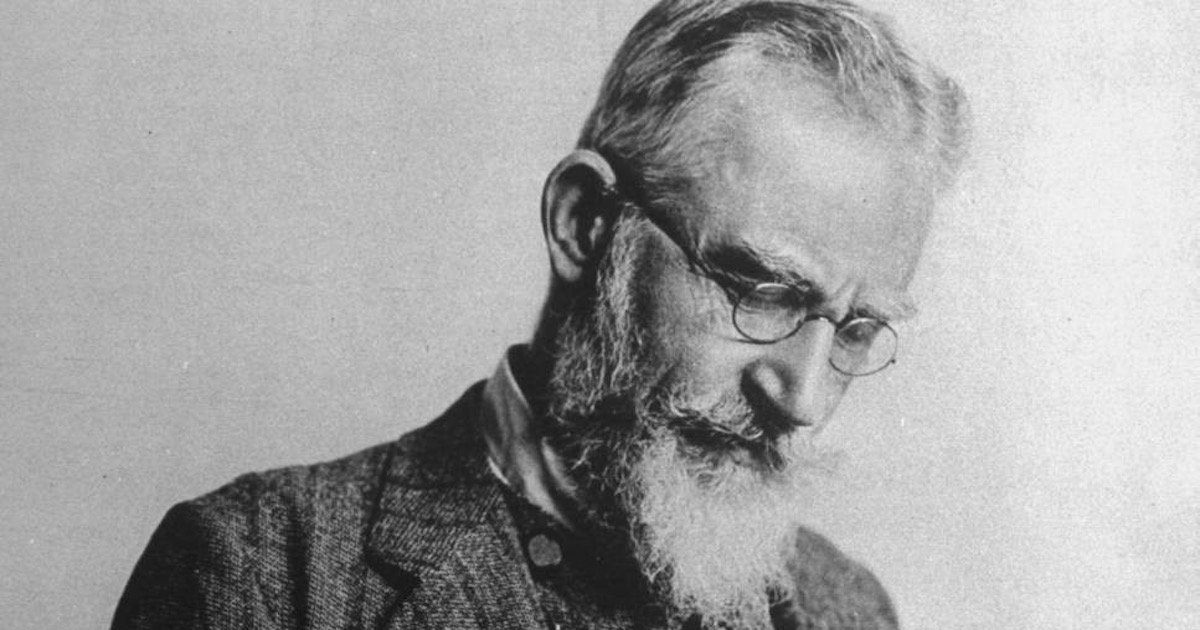 Culture & Ethics
Culture & Ethics
Shaw, Chesterton, and the Critique of Darwinism

Editor’s note: The following, first in a three-part series, is adapted from an essay in National Review and is republished here with permission. Professor Aeschliman is the author of The Restoration of Man: C.S. Lewis and the Continuing Case Against Scientism (Discovery Institute Press).
George Bernard Shaw lived to be 94, dying 70 years ago, in 1950, and was for several decades, along with H. G. Wells, the most influential writer in the world, winning the Nobel Prize for Literature in 1925 and becoming quite wealthy after early adult years of real poverty in London. His play Pygmalion (1912) was turned into the musical My Fair Lady by Alan Jay Lerner and became the most successful show in theater history, running in New York for over six years (1956–1962), closing only after 2,717 performances in New York and 2,281 performances in London, and was followed by an award-winning motion picture.
Professor Christopher Wixson of Eastern Illinois University has written a very good new book, George Bernard Shaw: A Very Short Introduction, and, in 2021, Oxford University Press is bringing out new scholarly editions of several of Shaw’s dramatic and prose works. Like his sometime Fabian-socialist comrade Wells, Shaw was explicitly a modernist and a secular-utilitarian evangelist; unlike Wells, the dramatist Shaw’s great literary weapons were humor, satire, and irony. Shaw’s seemingly extreme and often paradoxical views were leavened by a genius for wit and humor that his younger and less long-lived contemporary G. K. Chesterton (1874–1936) illuminated in saying “by laughter only can you destroy evil without malice.”
“Creative Evolution”
Chesterton was a friend of Shaw but also an ideological opponent, who often debated with him on public stages, defending with uncommon eloquence a traditional “mere-Christian,” natural-law view of the human person and human history, as opposed to Shaw’s aggressive, multifaceted modernism, his feminism, Nietzscheanism, socialism, vegetarianism, “creative evolutionism,” and eugenics. He also wrote a great short book on Shaw, published early in the latter’s career (1909), to which he added a final chapter on the intervening 25 years of Shaw’s life and work in 1935, the year before Chesterton’s own death. Shaw’s long life, voluminous literary output (the 1938 collected edition contained 33 volumes and Shaw still had a dozen years to live), and vast influence have attracted authoritative volumes by numerous scholars and biographers, including Malcolm Muggeridge’s close friend Hesketh Pearson (1942), St. John Ervine (1956), the distinguished Anglo-American theater scholar Eric Bentley (1947 and subsequent editions), and Michael Holroyd, who wrote a multivolume biography (one-volume edition, 1997). Yet both Bentley and Ervine claimed that Chesterton’s short, early work on Shaw was the best, with Ervine calling it “the best book on Shaw that has been written and . . . probably . . . the best that ever will be written.” (Similar claims have been made for Chesterton’s books on Saint Thomas Aquinas, Charles Dickens, and Robert Browning and for his The Victorian Age in Literature.)
Darwin and Nietzsche Against Humanitarian Idealism
Both Shaw and Chesterton were great intuitive thinkers with an astonishing capacity for precise, vivid locutions and literary formulations, for witty and profound insights. They also shared another rare personal quality — a kind of magnanimous sincerity that could deal with opponents with a disarming candor and generosity that often evoked admiration and even friendship across ideological lines. Chesterton’s brief, brilliant 1909 study of Shaw was augmented with that concluding 1935 chapter (not, alas, always reprinted with the original), in which he said, “I can testify that I have never read a reply by Bernard Shaw that did not leave me in a better temper or frame of mind; which did not seem to come out of an inexhaustible fountain of fair-mindedness and intellectual geniality.” Yet the Chesterton–Shaw controversies were not just literary shows for a mutual-admiration society: The younger man deeply and forcibly criticized Shaw’s views and even his public effect. Both were, like Wells, public intellectuals and moralists and believed that the stakes in their controversies were real and high, a matter of true and false worldviews and moral valuations.
But in order to understand Chesterton’s considered view of Shaw, it is important to realize what in Shaw’s personality and work he admired. In the period in which Chesterton came to maturity, 1880–1914, “science announced non-entity and art admired decay,” in his words in 1908. Various kinds of nihilism succeeded the romantic, revolutionary Prometheanism of the French Revolution and its sequels in 1830, 1848–49, and 1871, with Darwin and Nietzsche perhaps the deepest and most forbidding iron nails pounded into the coffin of humanitarian idealism.
Tomorrow, “Darwinism as the Root Problem of Modernity.”
